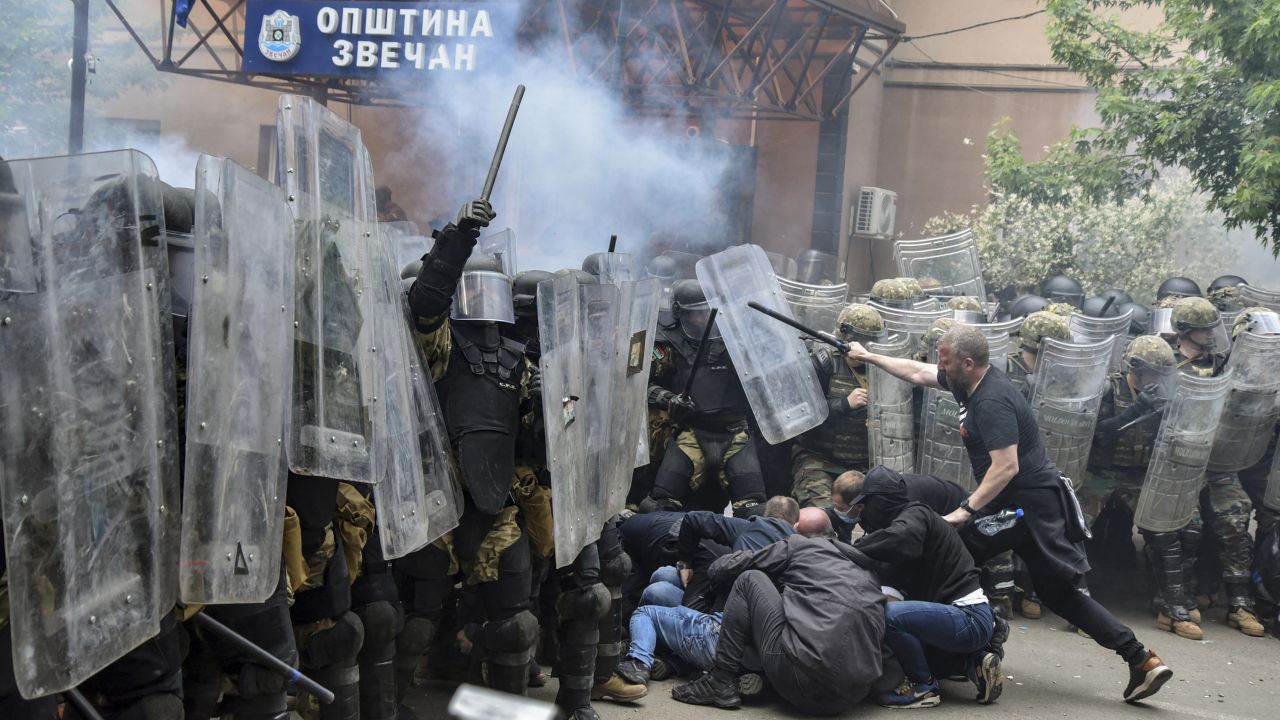In recent days, Kosovo, a region known for its volatile history, has once again emerged as a flashpoint of conflict in the Balkans. Ethnic tensions between Albanians and Serbs have erupted into violent clashes, with NATO peacekeeping forces caught in the crossfire. Approximately 25 peacekeeping soldiers were injured while defending town halls in northern Kosovo, following a boycott of local elections by Serb residents.
Kosovo has a complex history marred by ethnic tension. The region declared independence from Serbia in 2008, but its sovereignty is still contested by the Serb-majority population in its northern municipalities. Despite an Albanian-majority countrywide, these areas continue to align themselves with Serbia and resist Albanian authority, leading to a significant divide within Kosovo itself.
The recent escalation began when ethnic Albanian mayors took office in these Serb-majority regions after elections that the Serb population boycotted. This move was rebuked by the United States and its allies, who see it as undermining efforts to normalize relations between the two ethnic groups. Clashes have broken out in several towns, with protesters using tear gas, stun grenades, and even graffiti to express their dissent.
This situation comes at a critical time for Serbia, which is preparing for its own elections. The incumbent President, Aleksandar Vucic, has been accused by Kosovo President Vjosa Osmani of destabilizing Kosovo, an accusation he deflects onto Kosovo's Prime Minister, Albin Kurti. The coming elections could potentially be influenced by the events in Kosovo, with President Vucic likely to capitalize on the nationalist sentiments and present himself as a defender of Serb interests.
However, there is a broader regional and continental context to consider. An escalation in Kosovo could destabilize the Balkans, a region already known for its ethnic and political complexities. This could have potential repercussions for the European Union, which has invested heavily in the stability and development of the region. A destabilized Kosovo could also alter geopolitical alignments, especially with Russia, which has traditionally supported Serbia, and the United States, a staunch supporter of Kosovo's independence.
In conclusion, the situation in Kosovo is a complex interplay of historical tensions, political maneuvering, and regional geopolitics. As the Serbian elections approach, the world watches closely to see how the events unfold and what implications they may have for the region and beyond. The international community is calling for restraint and dialogue, underlining the importance of peace and stability in the area.










Trackbacks and Pingbacks